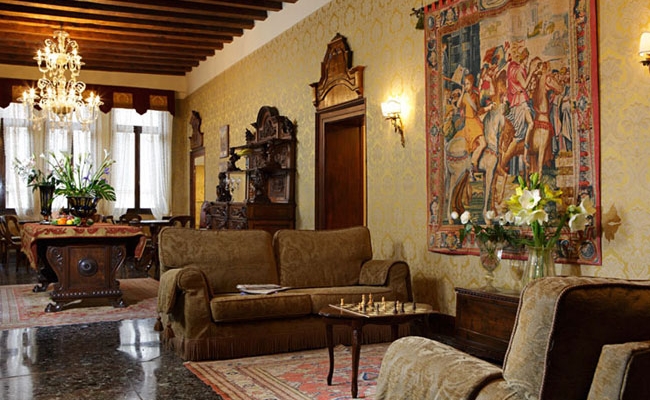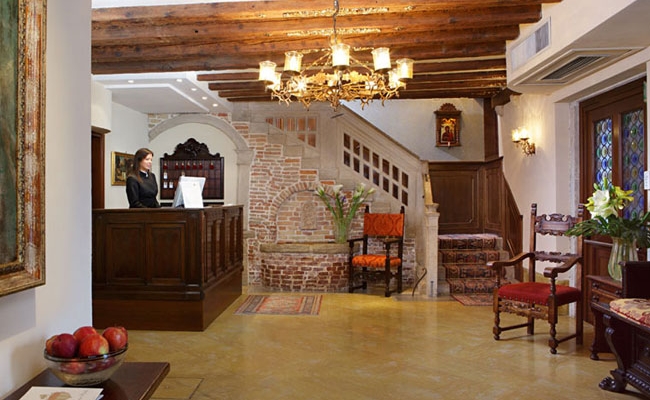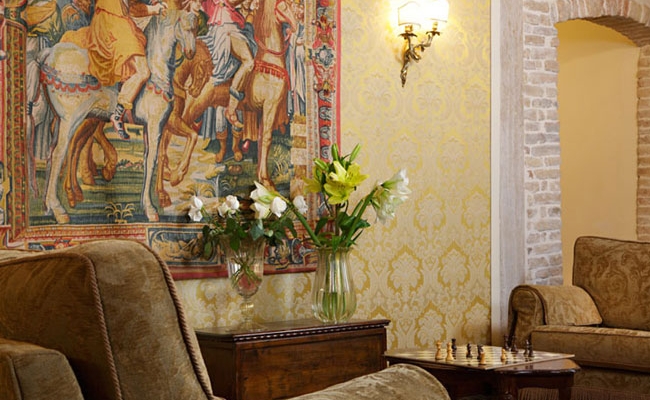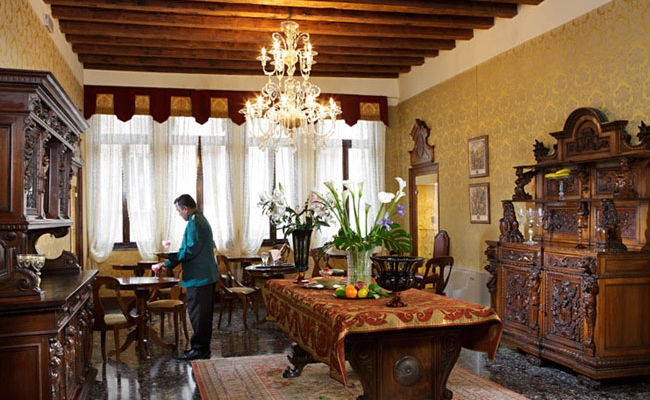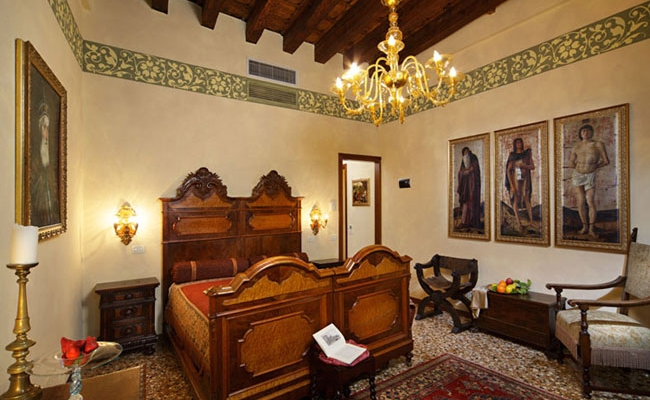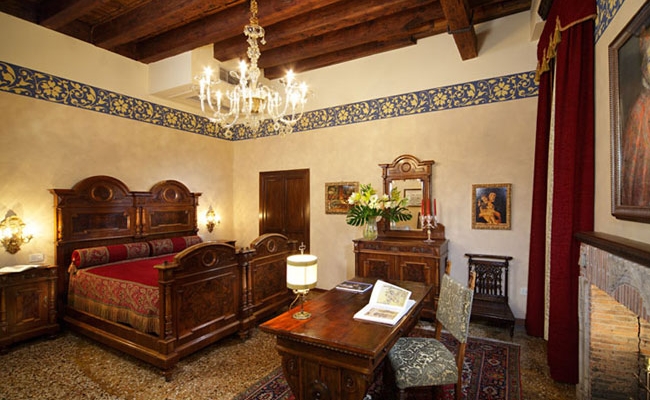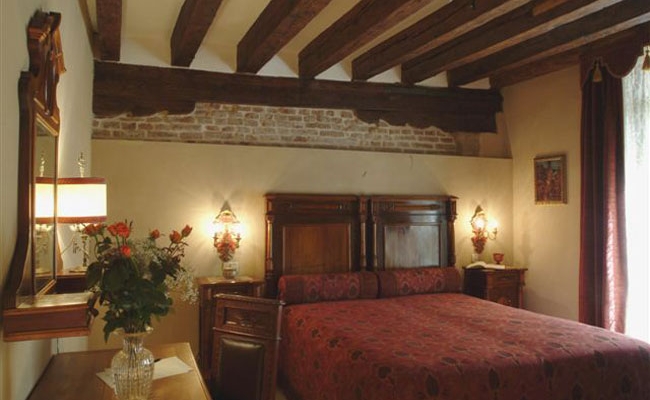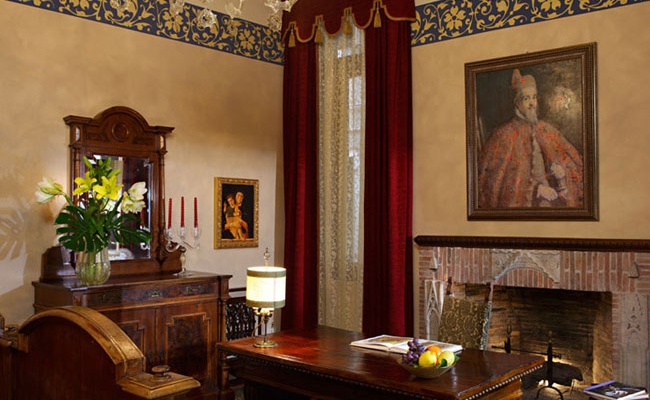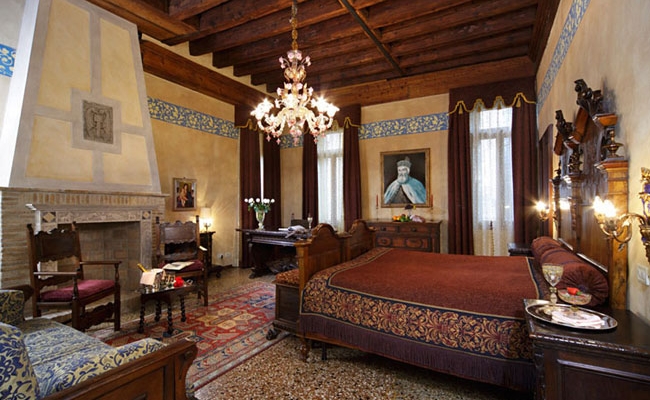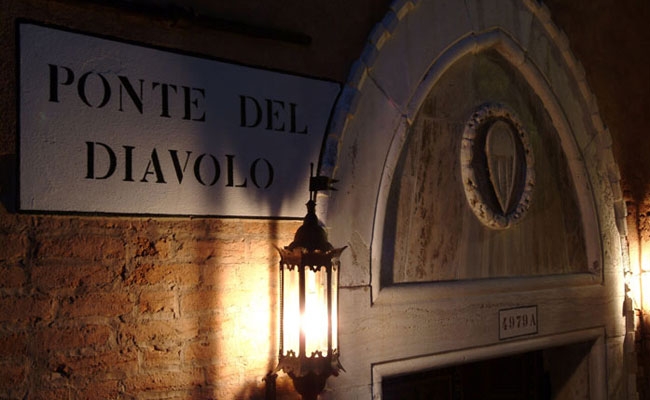Palazzo Priuli
Venice, Italy
Rising majestically alongside two enchanting canals in a quiet neighborhood not far from Saint Mark’s Square, Palazzo Priuli is an architectural gem that has inspired painters and architects throughout the centuries. The house was built for Procurator Giovanni Priuli in the late fourteenth century and was among the first secular constructions in the city to incorporate several of the architectural innovations from the recently completed Doge's Palace. It consequently marks a significant step toward the full flowering of Venetian Gothic architecture and shows a masterful blending of Italian Gothic elements with delicately carved Moorish traceries. Originally frescoed on the facade by Palma Vecchio, the home is a testament to the wealth and prominence of the noble Priuli family.
Today the ancient Priuli home has become a deluxe four-star hotel offering modern amenities and comfort within the setting of an authentic, history-rich Venice. With its spacious, elegantly furnished rooms, the surrounding picturesque canals, and courteous staff, Palazzo Priuli makes a stay in Venice both memorable and enjoyable. This hatel has a 100% non-smoking policy. The Hotel Palazzo Priuli is in the heart of Venice’s historic center. The hotel is only 200 meters away from Piazza San Marco and 500 from the Rialto Bridge, in an area rich with masterpieces and characteristic corners of the city.
As with other great homes of the time, Palazzo Priuli was designed in consideration of the practical function of the house which had to serve not only as residence but as headquarters for the seafaring and trading interests of the family. The hall of Hotel Palazzo Priuli consequently displays maps, nautical charts, and ship designs to recall the earlier commercial function of the androne, or hallway, which was used for exhibiting armor and for business negotiations with storerooms and offices alongside and a portico by the canal where it was possible to load and unload wares.
The windows and doorways have been reconstructed using fine Venetian bottle glass held in place by leaden and wooden frames. The extensive use of glass in Venice greatly impressed foreigners visiting the city. The thriving local glass industry made it possible for even the humblest buildings in Venice to have glass rather than the oiled canvas and parchment that covered windows in other European cities. In the great homes, bottle-glass could be used to make large windows, allowing more light to penetrate into those rooms that would have otherwise been dark as a result of the densely built-up urban environment.
The original beamed ceiling survives to this day. It was constructed using fir and larch floated downstream to Venice from the Dolomites. This soft wood was ideally suited for ceiling beams in the city due to the length and light weight. Resin in the wood also gave a degree of natural protection against humidity while the elasticity helped to absorb minor shifts in the foundation. As at Palazzo Priuli, visible timbers were often richly decorated with painted or carved designs.
Small devotional shrine housing a Byzantine icon contributes to recreating the atmosphere of a noble-merchant's home. Such shrines were a form of popular devotion amongst the Venetians. They were common alongside the streets throughout the city as well as in the "androni" of the greater homes. Original neo-Renaissance furnishings from the late nineteenth century, hand-wrought iron chandeliers with Murano glass globes, rich brocades, supple velvets, and oriental rugs complete the decor and recreate the emotion of an historical Venice.
With four giant Gothic windows, the "salone", or central hall, opens up onto the main facade of the house and to a picturesque view of the canal "Rio de l'Osmarin". Venetian homes were typically built with a series of similar windows that illuminated the "salone" and allowed more light to penetrate into the inner parts of the house.
Handicraft stores, boutiques with international brandnames and artistic Murano glass for characteristic shopping, typical bacari (or osterie) with typical Venetian dishes, are all in the surrounding areas of the hotel in Venice.
Each room is unique and offers a private bathroom with a tub. They have an individually regulated summer and winter climate control system, color satellite television, mini-bar, hair dryer, radio, safety deposit box, and a telephone with direct dialing and access for fax/modem. As with all of the rooms in the hotel, no smoking is allowed. Hotel has a lift.
The boat stop that takes people to all of Venice, is only 5 minutes away from Hotel Palazzo Priuli.
Client Comments:
"The Palazzo Priuli was charming and in a great location. The canal view was fabulous. We enjoyed our free time in this unique place with no tours. Gondola ride was surreal and St. Mark's at night (with the orchestras) was a splendid way to end our trip." 6-09
Call or e-mail for rates and availability
Superior Double Canal View
Deluxe Double Canal View
Deluxe Triple Canal View
Deluxe Quad Canal View
Junior Suite Canal View
Client Comments
"We loved the Palazzo Priuli in Venice. The staff was very accommodating and the location was great. We loved the nieghborhood - very convenient to St. Mark's etc. but with its own terrific neighborhood cafes, gelato stands and shops. It was very enjoyable."
